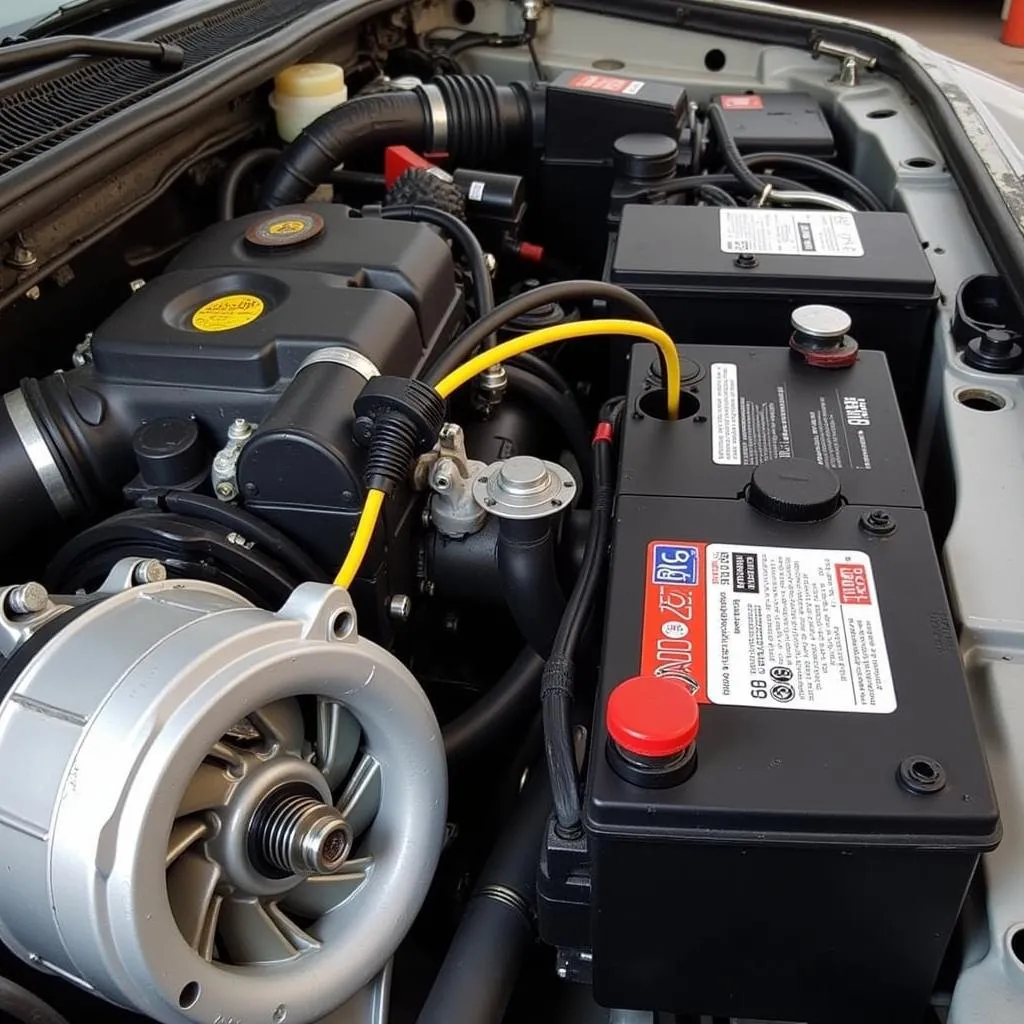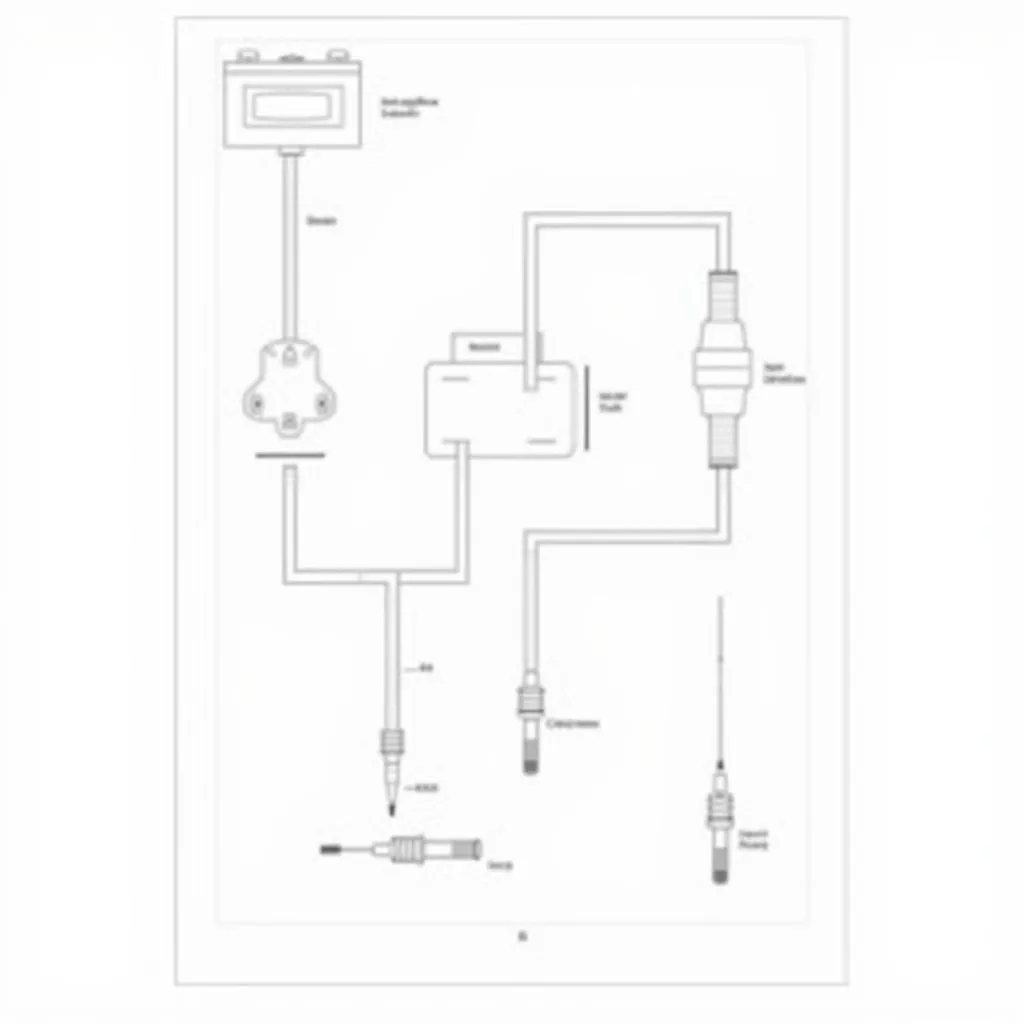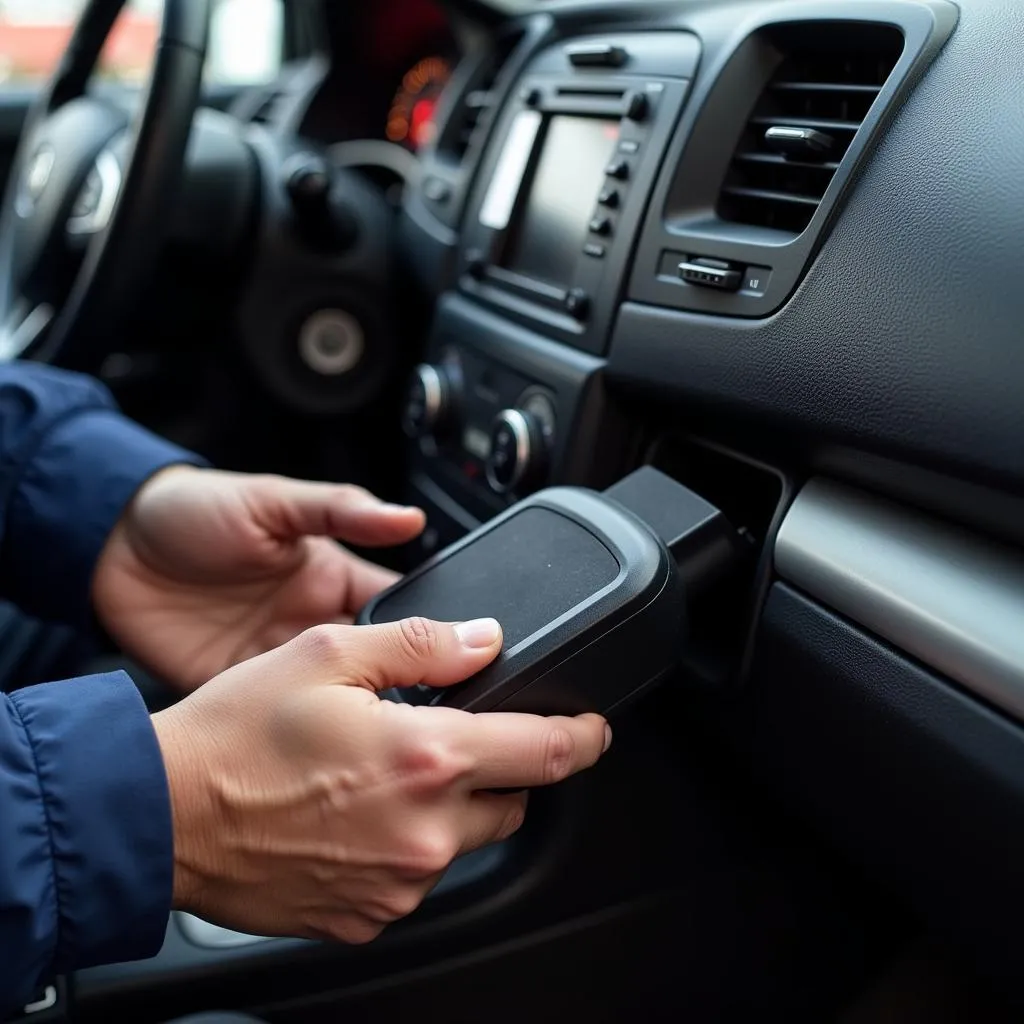Your car battery is fully charged, the lights come on, but the engine refuses to turn over. It’s incredibly frustrating when your car won’t start but the battery is good. Before you call a tow truck, there are several common culprits you can investigate yourself. This article will guide you through the potential causes and provide practical solutions to get you back on the road.
 Car engine bay
Car engine bay
Understanding the Starting System
To troubleshoot effectively, it’s helpful to grasp the basics of how your car starts:
- Battery: Acts as the power source for starting.
- Starter Motor: An electric motor that cranks the engine, setting the pistons in motion.
- Ignition System: Generates the spark needed to ignite the fuel-air mixture in the cylinders.
- Fuel System: Delivers fuel to the engine.
A breakdown in any of these areas can prevent your car from starting.
Common Reasons Your Car Won’t Start
Let’s explore the common reasons your car might refuse to start, even with a good battery:
1. Faulty Starter Motor
Symptoms: A clicking sound when you turn the key, especially a rapid clicking, often indicates a failing starter motor. The engine won’t crank.
What to do:
- Tap the Starter: Gently tap the starter motor with a hammer or wrench a few times. This can sometimes dislodge a stuck component and allow the starter to engage.
- Check Connections: Inspect the connections on the starter for looseness or corrosion. Tighten any loose connections and clean corroded ones.
- Seek Professional Help: If tapping and checking connections don’t work, you’ll likely need a new starter motor. Consult a qualified mechanic for proper diagnosis and replacement.
2. Ignition System Problems
Symptoms: Engine doesn’t crank or cranks slowly. You might notice a lack of spark or a weak spark from the spark plugs.
What to do:
- Check Spark Plugs: Remove a spark plug and inspect its condition. Look for excessive wear, fouling, or damage. If necessary, replace the spark plugs.
- Inspect Ignition Coils: Modern cars often have individual ignition coils for each cylinder. A faulty coil can prevent the cylinder from firing. Have a mechanic test the coils if you suspect an issue.
- Consider the Ignition Switch: Though less common, a faulty ignition switch can prevent power from reaching the starter and ignition system. A mechanic can diagnose this issue.
 Diagram of car ignition system
Diagram of car ignition system
3. Fuel System Issues
Symptoms: Engine cranks but doesn’t start. You might smell gasoline, indicating fuel is reaching the engine but not igniting.
What to do:
- Listen for the Fuel Pump: When you turn the key to the “on” position (without starting the engine), you should hear a faint humming sound from the fuel pump. If you don’t hear it, the pump might be faulty.
- Check the Fuel Filter: A clogged fuel filter restricts fuel flow to the engine. If your car hasn’t had a recent fuel filter change, consider replacing it.
- Inspect Fuel Injectors: In modern cars, fuel injectors spray fuel into the cylinders. Malfunctioning injectors can prevent proper fuel delivery. A mechanic can diagnose and clean or replace faulty injectors.
4. Security System Malfunction
Symptoms: The engine might crank but not start, or it might not crank at all. This often occurs if the security system doesn’t recognize your car key.
What to do:
- Try a Spare Key: If you have a spare key, try using it to start the car.
- Check the Immobilizer System: Modern cars use immobilizer systems that prevent theft. If the system malfunctions, it might not recognize your key. Consult your car’s owner’s manual for information on resetting the immobilizer, or seek professional assistance.
5. Other Potential Issues
Beyond these common problems, other less frequent issues could be at play:
- Faulty Sensors: Sensors like the crankshaft position sensor or camshaft position sensor provide crucial timing information to the engine control unit (ECU). A faulty sensor can disrupt engine operation.
- Vacuum Leaks: Leaks in the intake manifold or vacuum hoses can disrupt the air-fuel mixture, preventing combustion.
- ECU Problems: Though rare, a malfunctioning ECU can cause various starting problems.
When to Seek Professional Help
While some starting problems have simple solutions, it’s essential to recognize when professional help is necessary. If you’ve checked the basic components and haven’t identified the issue, it’s best to consult a qualified mechanic. Attempting complex repairs without proper knowledge and tools can potentially cause further damage.
Preventing Future Starting Problems
Here are some proactive measures to reduce the likelihood of encountering starting problems:
- Regular Maintenance: Adhere to your car’s recommended maintenance schedule. This includes regular oil changes, spark plug replacements, and fuel filter changes.
- Battery Care: Periodically clean battery terminals and ensure connections are tight. Have your battery tested regularly, especially if it’s more than three years old.
- Quality Fuel: Use reputable gas stations and avoid running your tank too low, which can draw sediment into the fuel system.
- Pay Attention to Warning Signs: Address any unusual noises, warning lights, or performance issues promptly to prevent minor issues from escalating.
 Mechanic connecting a car diagnostic scanner
Mechanic connecting a car diagnostic scanner
Conclusion
A car that won’t start, even with a good battery, can be a frustrating experience. By understanding the common causes and following the troubleshooting steps outlined in this article, you’ll be better equipped to identify and potentially resolve the issue. However, remember that seeking professional assistance from a qualified mechanic is always recommended when dealing with complex car repairs or if you’re unsure about any aspect of the diagnosis. Regular maintenance and attentive care of your vehicle can go a long way in preventing future starting problems and keeping your car running smoothly for years to come.
FAQs
1. Can a bad alternator cause my car not to start?
While a failing alternator might eventually drain your battery, it won’t prevent your car from starting if the battery currently holds a charge.
2. My car starts intermittently. What could be wrong?
Intermittent starting problems can be tricky. Common culprits include loose connections, a failing starter motor, or a faulty ignition switch.
3. How long should a car battery last?
Car batteries typically last 3-5 years. However, factors like climate and driving habits can affect battery lifespan.
4. Is it safe to jump-start my car if it won’t start?
Yes, jump-starting can be safe if done correctly. However, ensure you follow proper procedures and connect the jumper cables to the correct battery terminals to avoid damage.
5. Can extreme temperatures affect my car’s ability to start?
Yes, both extreme heat and cold can affect battery performance and make it harder to start your car.
Still Having Trouble?
If you’re still experiencing car starting issues and need specialized diagnostic tools, consider exploring our range of VW code scanner, Audi OBD scanner, and VAGCOM for Volkswagen to help pinpoint the problem.
For expert guidance and support, don’t hesitate to reach out to our dedicated team. Contact us via WhatsApp: +1(641)206-8880, Email: [email protected], or visit our workshop at 276 Reock St, City of Orange, NJ 07050, United States. We’re available 24/7 to assist you with all your car diagnostic needs.